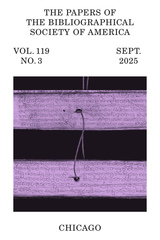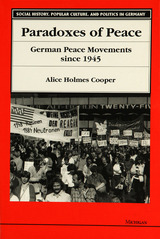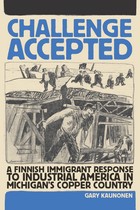
The copper mines of Michigan's Copper Country, in the Upper Peninsula, were active for 150 years, from 1845 until 1995. Many of the mine workers attempted to unionize, in order to obtain better working conditions, wages, and hours.
The Michigan miners were unsuccessful in their struggles with mine owners, which came to a climax in the 1913–14 Copper Country Strike. This nine-month battle between workers represented by the Western Federation of Miners (WFM) and the three major mining companies in the region took a particularly nasty turn on Christmas Eve, 1913, at a party for strikers and their families organized by the WFM. As many as 500 people were in the Italian Benevolent Society hall in Calumet, Michigan, when someone reportedly shouted "fire." There was no fire, but it is estimated that 73–79 people, more than 60 of them children, died in the stampede for the exit.
Against this dramatic backdrop, Gary Kaunonen tells the story of Finnish immigrants to Copper Country. By examining the written record and material culture of Finnish immigrant proletarians-analyzing buildings, cultural institutions, and publications of the socialist-unionist media—Kaunonen adds a new depth to our understanding of the time and place, the events and a people.

Historians have long assumed that new industrial machines and power sources eliminated work animals from nineteenth-century America, yet a bird’s-eye view of nineteenth-century society would show millions of horses supplying the energy necessary for industrial development. Horses were ubiquitous in cities and on farms, providing power for transportation, construction, manufacturing, and agriculture. On Civil War battlefields, thousands of horses labored and died for the Union and the Confederacy hauling wagons and mechanized weaponry.
The innovations that brought machinery to the forefront of American society made horses the prime movers of these machines for most of the nineteenth century. Mechanization actually increased the need for horsepower by expanding the range of tasks requiring it. Indeed, the single most significant energy transition of the antebellum era may have been the dramatic expansion in the use of living, breathing horses as a power technology in the development of industrial America.
Ann Greene argues for recognition of horses’ critical contribution to the history of American energy and the rise of American industrial power, and a new understanding of the reasons for their replacement as prime movers. Rather than a result of “inevitable” technological change, it was Americans’ social and political choices about power consumption that sealed this animal’s fate. The rise and fall of the workhorse was defined by the kinds of choices that Americans made and would continue to make—choices that emphasized individual mobility and autonomy, and assumed, above all, abundant energy resources.
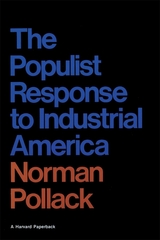
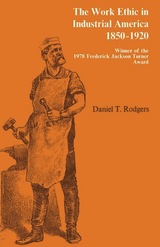
READERS
Browse our collection.
PUBLISHERS
See BiblioVault's publisher services.
STUDENT SERVICES
Files for college accessibility offices.
UChicago Accessibility Resources
home | accessibility | search | about | contact us
BiblioVault ® 2001 - 2025
The University of Chicago Press



